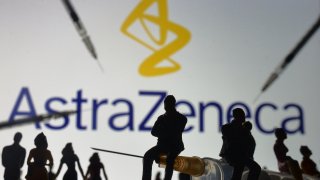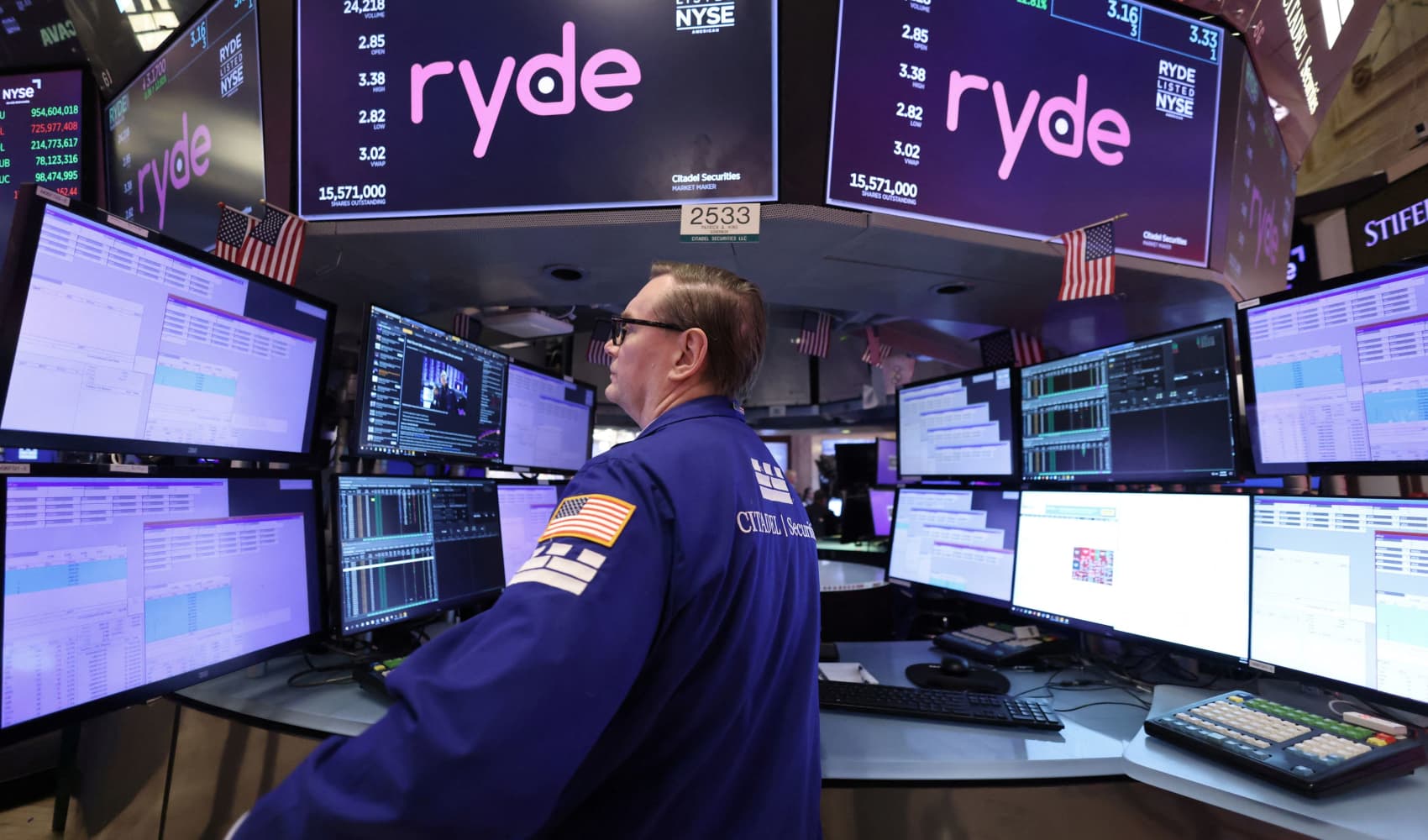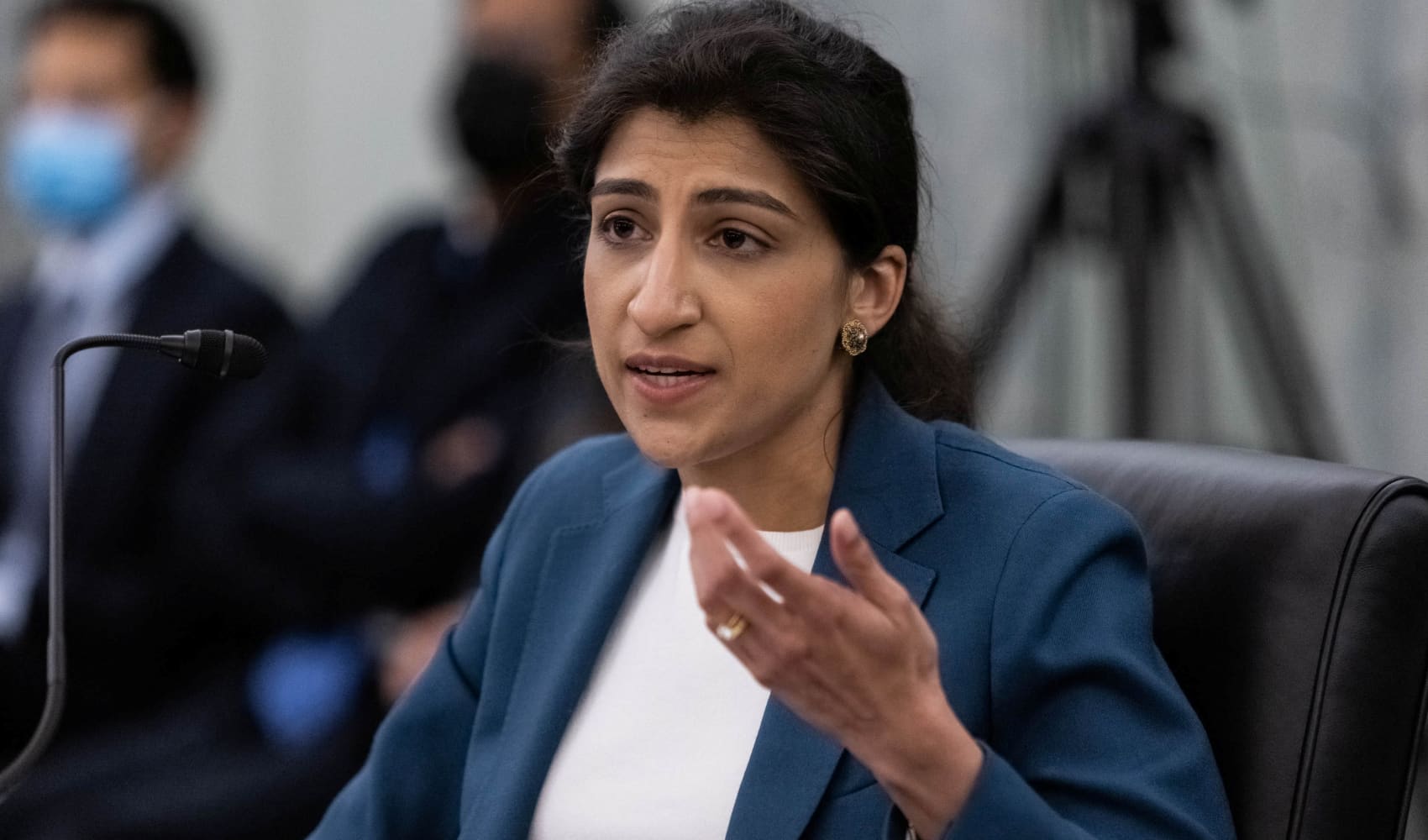
- Germany has suspended use of the coronavirus vaccine created by AstraZeneca and the University of Oxford in the under-60s, due to renewed concerns over reports of blood clots.
- The move comes after the country's medicines regulator found 31 cases of a rare type of blood clot in people vaccinated with the vaccine produced by the Anglo-Swedish drugmaker.
Germany has suspended use of the coronavirus vaccine created by AstraZeneca and the University of Oxford in the under-60s, due to renewed concerns over reports of blood clots.
The move comes after the country's medicines regulator found 31 cases of a rare type of blood clot in a small number of people immunized with the coronavirus vaccine produced by the Anglo-Swedish drugmaker. The suspension is likely to deal yet another blow to its vaccine's reputation.
What happened?
Get DFW local news, weather forecasts and entertainment stories to your inbox. Sign up for NBC DFW newsletters.
Initially, a few regions suspended some use of the shot Tuesday due to concerns over a possible link to rare but serious forms of blood clots. But then on Tuesday it was announced that the whole country would no longer give the vaccine to anyone under 60 years old following advice from the country's independent vaccine committee, known as STIKO.
The committee said in a statement on Tuesday that "after several consultations, the majority of the STIKO decided, with the help of external experts, to only recommend the Covid-19 AstraZeneca vaccine for people aged 60 and over."
This decision was "based on the currently available data on the occurrence of rare but very severe thromboembolic side effects. This side effect occurred 4 to 16 days after vaccination, predominantly in people (under) 60 years of age," it said.
Money Report
With regard to the question of administering the second vaccine dose to younger people who have already received a first dose of the AstraZeneca vaccine, Germany's vaccine committee said it would issue guidance on the matter by the end of April.
Germany's Paul Ehrlich Institute, a federal agency and medical regulatory body, told CNBC that there had been 31 cases of blood clots in the cerebral veins — a condition known as sinus vein thrombosis or cerebral venous sinus thrombosis — reported to it as part of spontaneous recording.
Within that number, thrombocytopenia (a condition characterized by abnormally low levels of platelets in the blood) was also reported in 19 cases. In nine of those cases, the people affected died.
All but two of the 31 cases involved women aged 20 to 63 years while the two men affected were 36 and 57 years old, the Paul Ehrlich Institute said.
It added that it "continues to investigate and evaluate all incoming case reports and is actively involved in the relevant discussions at the EMA," the European Medicines Agency, where case reports from all EU member states are evaluated.
To put the numbers in context, almost 2.7 million people in Germany had received a first dose of the AstraZeneca vaccine as of Monday, with 767 people having had a second dose, according to data from Germany's public health agency, the Robert Koch Institute.
Blow to AstraZeneca
Chancellor Angela Merkel said the suspension of the vaccine's use in the under-60s would help to boost citizens' trust, which has already been dented when it comes to the AstraZeneca vaccine after a series of missteps, arguably both on the part of the drugmaker, and by European leaders.
Read more:
'The damage is done': Europe's caution over AstraZeneca vaccine could have far-reaching consequences
Data, doubts and disputes: A timeline of AstraZeneca’s Covid vaccine problems
"Everything is based on one principle and that is trust," Merkel said at a news conference, Reuters reported. "Confidence arises from the knowledge that every suspicion is counted in every individual case." The 66-year old chancellor added that she would also be willing to receive the AstraZeneca vaccine "when it is my turn," Deutsche Welle reported.
Nonetheless, Germany's move is bound to cause more pain to AstraZeneca and public confusion and concern toward the vaccine.
AstraZeneca has already seen its shot suspended once before in a handful of European countries, before the EMA and World Health Organization reviewed the vaccine's safety data and concluded that was "safe and effective" and its benefits outweighed any risks.
The EMA said at the time, however, that it could not rule out any link between the shot and blood clots, which are a regular occurrence in the general population at any rate. Concerns have been raised enough for Canada to also suspend use of the vaccine in the under-55s over fears of a possible link to blood clots.
Clinical and real-world data have shown the vaccine to dramatically reduce Covid cases, hospitalizations and deaths, however. The vaccine is a major component of the U.K.'s, and other countries' immunization programs, and is seen as a cost-effective vaccine that can be easily transported and stored.
On Wednesday, the WHO said it continues to monitor safety evidence reviews of the vaccine but that the shot's benefit-risk profile "weighs heavily in favor of its use," Reuters reported.
Alejandro Cravioto, chair of the WHO's Strategic Advisory Group of Experts on Immunization, told a briefing the panel was "comfortable" with the vaccine's use, since many of the countries using it have safety warning systems in place and are not reporting problems.
Drugmaker defends itself
Many scientists and the U.K. government have defended the shot, saying it has already saved thousands of lives.
In a statement to CNBC, AstraZeneca said international regulators had found the benefits of its jab outweighed any possible risks significantly.
It said it was continuing to analyze its database of tens of millions of records for the vaccine to understand "whether these very rare cases of blood clots associated with thrombocytopenia occur any more commonly than would be expected naturally in a population of millions of people."
"We will continue to work with German authorities to address any questions they may have," it added.
The drugmaker stressed that "tens of millions of people have now received our vaccine across the globe. The extensive body of data from two large clinical datasets and real-world evidence demonstrate its effectiveness, reaffirming the role the vaccine can play during this public health crisis."
Previously, Germany had not given the vaccine to people 65 and over, saying there was insufficient data on its efficacy in that age group. As more data emerged showing it was safe and effective, however, it reversed that policy.






